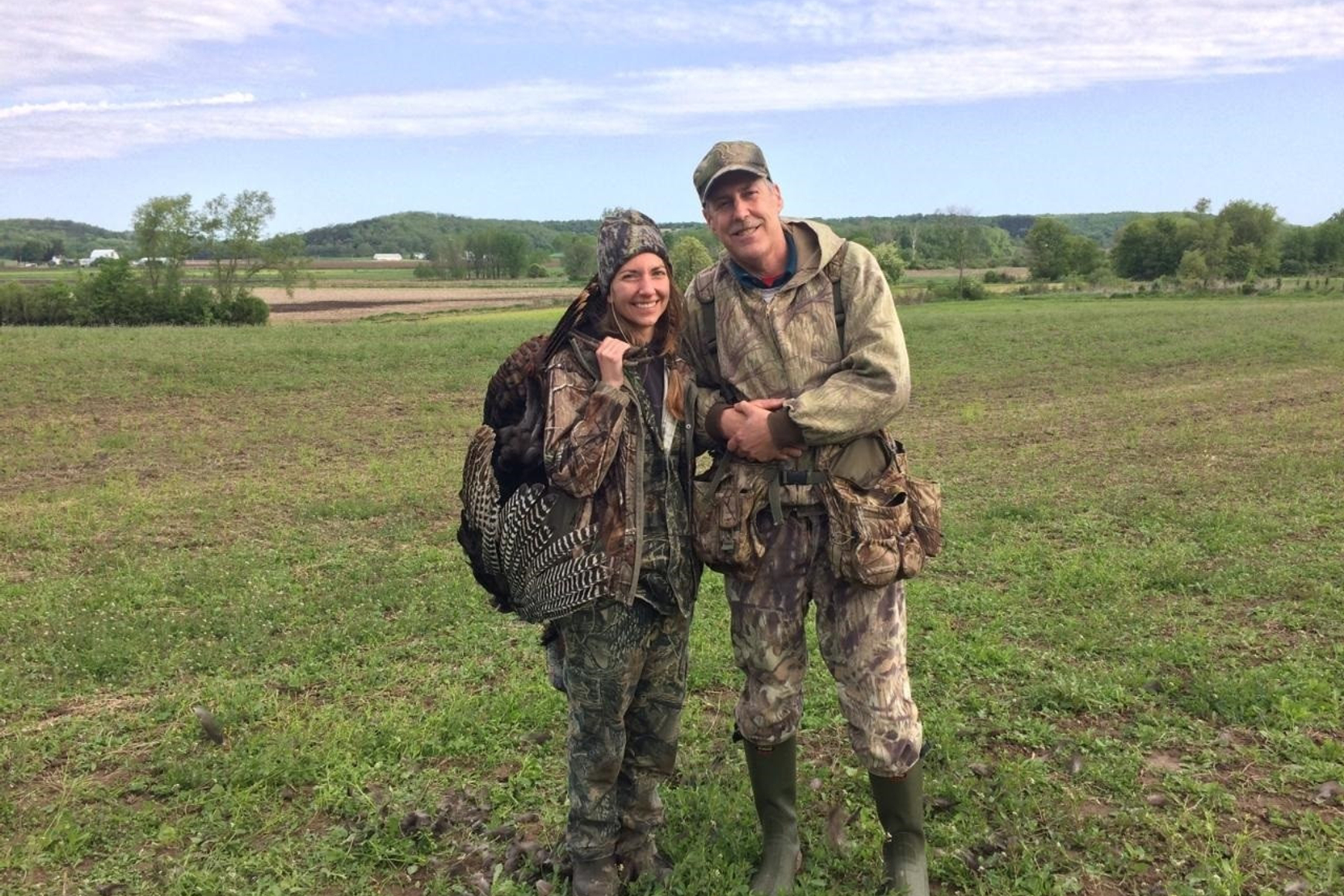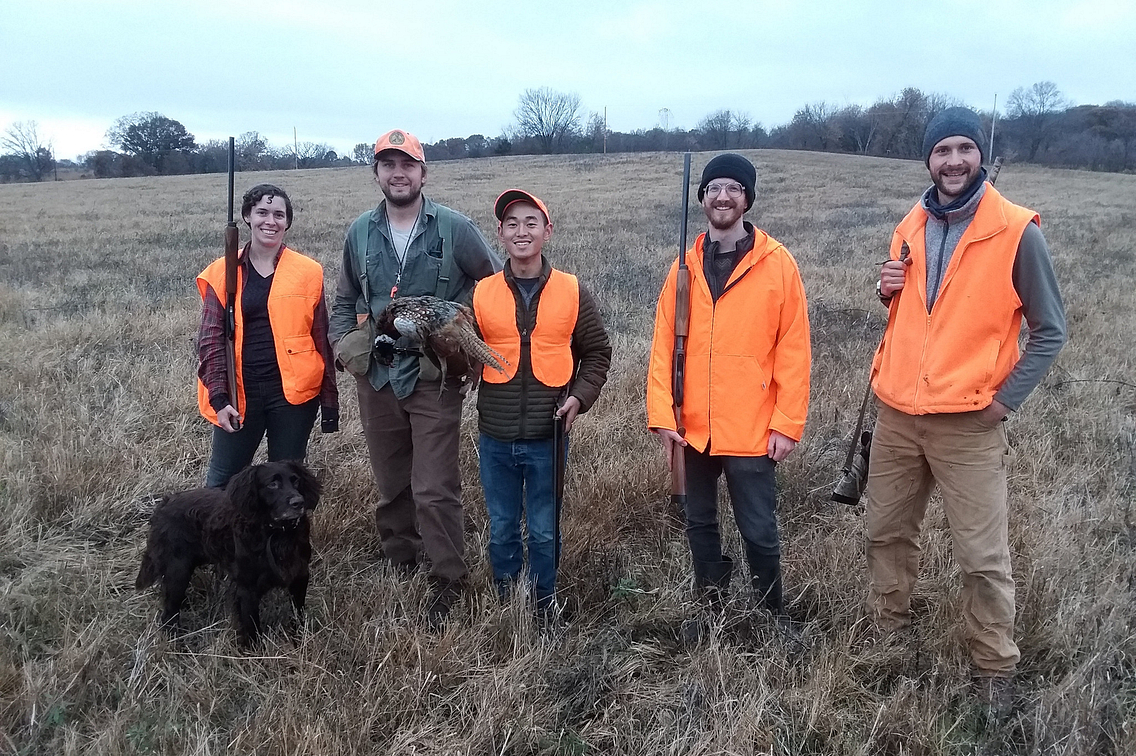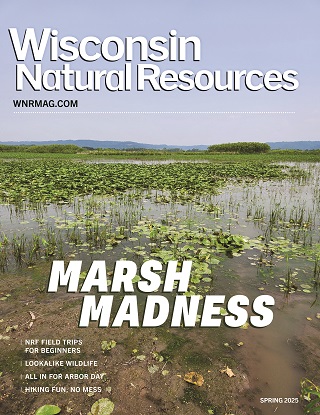Hunting inspiration
CHARACTERISTICS SUCH AS PATIENCE AND RESPECT HELP TO MAKE A BETTER MENTOR
John Motoviloff
 Mentor Jim Wipperfurth, right, and Emily Iehl, who has learned to hunt as an adult.
Mentor Jim Wipperfurth, right, and Emily Iehl, who has learned to hunt as an adult.©COURTESY OF EMILY IEHL
Readers of Wisconsin Natural Resources, like conservationists in general, know something about the importance of hunting to the conservation world. As baby boomers age out of what can be a strenuous pursuit, hunter numbers could be expected to decrease rapidly going forward.
This is important for hunters and others concerned about natural resources for several reasons including the fact that in the United States, conservation is funded in large part by license sales and excise taxes placed on hunting equipment through the Pittman-Robertson Act.
Recruitment efforts over the last several decades have focused on encouraging children to develop an interest in hunting, but this approach has not produced new hunters on a large scale. That has pushed more government agencies and private conservation groups to focus on recruiting adults — who, in turn, can recruit their own family and friends.
With this approach, the importance of quality mentors has become ever more apparent. Bringing more millennials into the hunting world requires a special touch.
No one knows the importance of mentoring better than Cortney Schaefer, the Hunting Heritage Program Manager for Pheasants Forever. She runs the first nationwide mentor training program, part of efforts to recruit, retain and reactivate (R3) more outdoors people.
"It's vital to establish a standardized formal program for training ethical hunting mentors throughout the country," Schaefer said. "This not only helps meet the demand for more mentors, but also engages and empowers current hunters."
It's not necessary to be a great hunter to be a good mentor. No one expects perfection. Keith Warnke, R3 supervisor for the Department of Natural Resources, said hunting class surveys indicate something else is important to newcomers.
"What they're looking for is someone to help them navigate the world of becoming a new hunter, someone to stick with them," he said.
 Jacob Zeuske, second from right, mentored this group of novices on a pheasant hunt outing for adults.©COURTESY OF EMILY IEHL
Jacob Zeuske, second from right, mentored this group of novices on a pheasant hunt outing for adults.©COURTESY OF EMILY IEHLHere are other characteristics of good mentors.
- Be relatable. First and foremost, mentors must be able to relate, whether that's explaining chokes and shot size in a way that's free of technical jargon or understanding individuals different than themselves. Millennials are the largest and most diverse generation in history, and women are the fastest-growing segment of the hunting population. These groups are key to the future of hunting. Good mentors need to grasp — and embrace — this.
- Be respectful. Good communication and respect go hand-in-hand. This means keeping personal views on politics and religion out of the blind (unless your mentee asks). Keep language and hygiene clean. Think of your mentee as your daughter or niece, your co-worker's son. You want to show a positive image of hunters. Respect also extends to the moment of the kill. Don't offer a high five if your mentee is sitting there quietly. Take cues from him or her.
- Focus on the mentee. It's common for hunters to think, "Shoot! Why don't you shoot? Here's your chance." While this kind of thinking comes from a good place — wanting to make everything come together for the mentee — it focuses on the mentor, and not the mentee. Better to say, "OK, this is a safe and ethical shot" and let him or her decide. She might take the shot next time. Or maybe he'll go on to be a hunting advocate (equally valuable, as hunting's future depends on continued public support) instead of an active hunter. Like all ethical acts, the decision to take an animal's life has to be made freely by the individual.
- Be in it for the long haul. Single events don't make hunters and anglers. Becoming a sportsman or sportswoman depends on others who provide time and social support. "It takes multiple positive experiences in the field, woods, marshes with a good mentor before a new hunter is confident enough to hunt on their own," Schaefer said. Bring your mentee to the range, attend a game feed or Conservation Congress meeting. Watch wildlife in the off-season. Stay connected.
- Have fun. Who wants to start a new pursuit when it's a forced march? If you think it's cold or uncomfortable, chances are your mentee has been thinking that, too. If you sense signs of discomfort, it's time to head for breakfast and hot coffee. It's not a contest. Check in to see how they're doing.
- Be patient. Think back to when you started hunting. "You did not just read a book or watch a video and then instantly feel confident enough to go hunting," Schaefer said. "You likely had somebody to show you how to handle a firearm, how to scout, how to handle a gun-dog, process game, etc." Provide support to help your mentee hang in there, and let them know that you also miss shots, pick the wrong day to go out and occasionally just make a mess of things. Hunting and mentoring are like marriage — you learn as you go, but that doesn't mean you're perfect.
John Motoviloff is the Hunting and Shooting Sports R3 Coordinator for the National Wild Turkey Federation in Wisconsin.
INFORMATION
Pheasants Forever offers mentor training for conservation organizations. To schedule, contact Marty Moses, R3 Wisconsin Coordinator, at 608-712-8625 or Marty Moses. To be a mentor for DNR-sponsored Educational Outdoor Skills Programs, certification including a background check is required. Search the DNR website, keywords "mentor background," for details.

